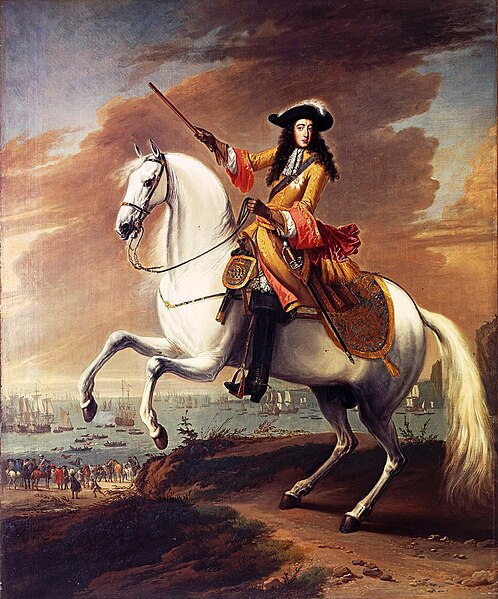Aphra Behn was an English playwright, poet, prose writer and translator from the Restoration era. As one of the first English women to earn her living by her writing, she broke cultural barriers and served as a literary role model for later generations of women authors. Rising from obscurity, she came to the notice of Charles II, who employed her as a spy in Antwerp. Upon her return to London and a probable brief stay in debtors' prison, she began writing for the stage. She belonged to a coterie of poets and famous libertines such as John Wilmot, Lord Rochester. Behn wrote under the pastoral pseudonym Astrea. During the turbulent political times of the Exclusion Crisis, she wrote an epilogue and prologue that brought her legal trouble; she thereafter devoted most of her writing to prose genres and translations. A staunch supporter of the Stuart line, Behn declined an invitation from Bishop Burnet to write a welcoming poem to the new king William III. She died shortly after.
Behn c. 1670
A sketch of Aphra Behn by George Scharf from a portrait believed to be lost (1873)
Portrait by Mary Beale
Title page of the first edition of Oroonoko (1688)
The Restoration of the Stuart monarchy in the kingdoms of England, Scotland, and Ireland took place in 1660 when King Charles II returned from exile in continental Europe. The preceding period of the Protectorate and the civil wars came to be known as the Interregnum (1649–1660).
King Charles II in coronation robes by John Michael Wright
The departure of Charles II from Scheveningen (1660)
Thomas Harrison, the first person found guilty of regicide during the Restoration
Equestrian portrait of William III by Jan Wyck, commemorating the start of the Glorious Revolution in 1688








